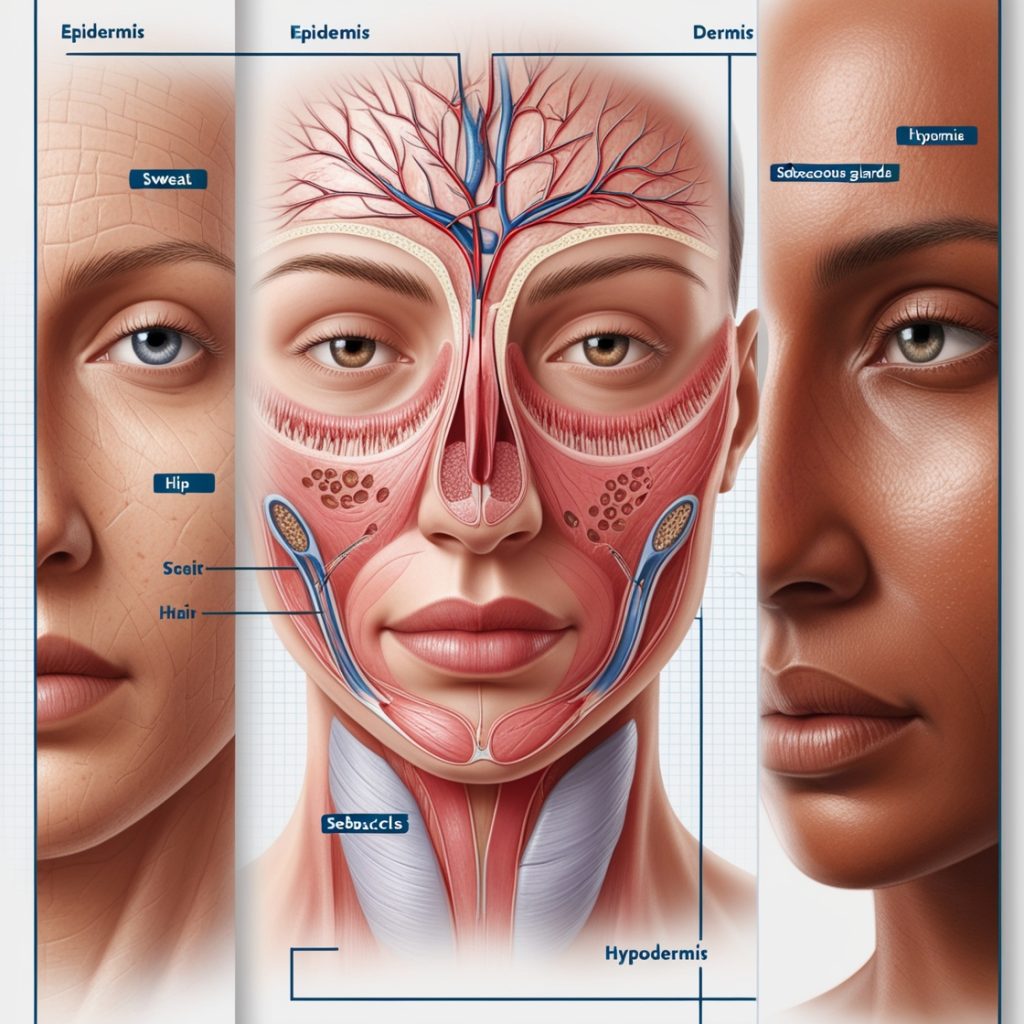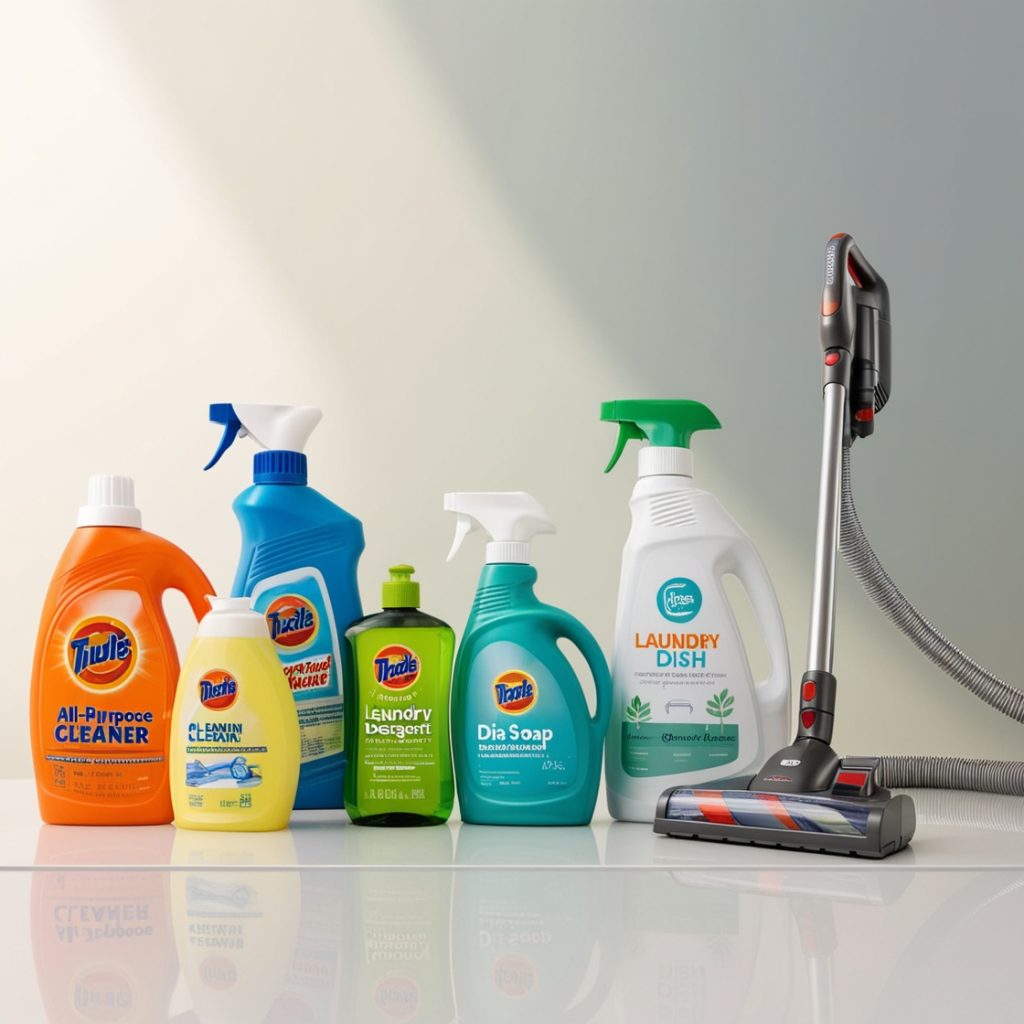
“Skin is the largest organ in the body. It’s a barrier that protects us from the outside world. But what happens when that barrier is compromised by harmful chemicals lurking in our own homes?” Chemical Exposure from household Products and Its connection to skin irritation – Exposure to chemicals from cleaning sprays and laundry detergents can include seemingly harmless items that actually contain substances which wreak havoc on our skin.
I remember a time when I was younger and thought that the stronger the smell of a cleaning product, the better it must be at getting things clean. I’d scrub away with bleach and harsh detergents, convinced that I was doing my part to keep my home sparkling. But what I didn’t know then was that I was also exposing myself to a host of chemicals that could be wreaking havoc on my skin.
As a Black woman, I’ve always been conscious of the importance of taking care of my skin. I know that our skin can be prone to certain issues, such as hyperpigmentation and dryness. But it wasn’t until I started doing more research that I realized how much of an impact household chemicals can have on our skin health.
In this blog post, I’m going to share some information about the different types of chemicals found in household products and how they can affect your skin. I’ll also provide some tips for choosing safer products and minimizing your exposure.
Types of Chemicals Found in Household Products
There are many different types of chemicals found in household products. Some of the most common include:
- Phthalates: These chemicals are used to make plastics more flexible. They can be found in a variety of products, including soaps, shampoos, and detergents. Phthalates have been linked to skin irritation, allergies, and reproductive problems.
- Parabens: These chemicals are used as preservatives in many products, including cosmetics and personal care products. Parabens can disrupt hormones and have been linked to breast cancer.
- Formaldehyde: This chemical is used as a preservative and antimicrobial agent in many products, including cleaning products and personal care products. Formaldehyde can cause skin irritation, allergies, and cancer.
- Chlorine: This chemical is used as a disinfectant in many products, including bleach and swimming pool chemicals. Chlorine can cause skin irritation, allergies, and asthma.
- Ammonia: This chemical is used as a cleaning agent in many products, including window cleaners and floor cleaners. Ammonia can cause skin irritation, allergies, and respiratory problems.

How Chemicals Can Affect Your Skin
Chemicals can affect your skin in a number of ways. Some of the most common effects include:
- Skin irritation: Chemicals can cause skin irritation, including redness, itching, and dryness.
- Allergies: Some people may develop allergies to certain chemicals. This can cause a variety of symptoms, including hives, swelling, and difficulty breathing.
- Skin damage: Chemicals can damage your skin, making it more susceptible to sun damage and other problems.
- Cancer: Some chemicals have been linked to cancer, including skin cancer.
Tips for Choosing Safer Products
There are a number of things you can do to choose safer household products. Some tips include:
- Read the labels carefully: When you’re shopping for household products, be sure to read the labels carefully. Look for products that are free of harmful chemicals.
- Choose natural products: There are many natural products available that are just as effective as traditional products. Look for products that are made with natural ingredients.
- Make your own cleaning products: You can make your own cleaning products using natural ingredients. This is a great way to avoid exposure to harmful chemicals.
- Ventilate your home: When you’re using household products, be sure to ventilate your home. This will help to reduce your exposure to harmful chemicals.
- Wear gloves and protective clothing: When you’re cleaning or using other household products, be sure to wear gloves and protective clothing. This will help to protect your skin from exposure to harmful chemicals.
Conclusion
Household chemicals can have a significant impact on your skin health. By following the tips in this blog post, you can help to minimize your exposure to harmful chemicals and keep your skin healthy.
I hope this blog post has been informative. If you have any questions, please feel free to leave a comment below.
Additional Resources
- Environmental Working Group (EWG): https://www.ewg.org/
- Skin Cancer Foundation: https://www.skincancer.org/
- American Academy of Dermatology: https://www.aad.org/
I would also like to add that it is important to consult with a dermatologist if you are experiencing skin irritation or other problems. A dermatologist can help to diagnose the cause of your problem and recommend treatment.


